Maimako and children
Once a prosperous farmer in Zongoro — a village in Shiroro LGA of Niger state in the north-central part of Nigeria — Ibrahim Maimako saw his life crumbling and slowly falling into the harsh hands of poverty after a group of bandits repeatedly attacked the community and the residents fled for their lives.
Many residents have been kidnapped, some killed and properties like houses, farmlands and food products destroyed by dangerous bandits ravaging the zone. Several communities in the LGA have been abandoned by residents who now live at the government-provided shelters in Kuta, Erena, Gwada and Zumba towns in the state.
At the internally displaced persons (IDPs) camp at Day Secondary School, TumTum, in Kuta town — about 55 kilometres from Zongoro village — where Ibrahim took refuge with his family, he had to carry the burden of feeding ten children every day. With his source of income gone, the farmer in his mid-60s has turned into a shadow of his former self.
But Mairo, Ibrahim’s wife could not bear the hardship. Having to scavenge the markets and forests for food was a life she never bargained for. She told her husband that she would not sit in the camp and die of hunger. Mairo divided the children into two parts. With five of the older children, Mairo returned to their expansive farm in Zongoro. Despite Ibrahim’s pleas, she was determined to return to the farm and face the risk.
Advertisement
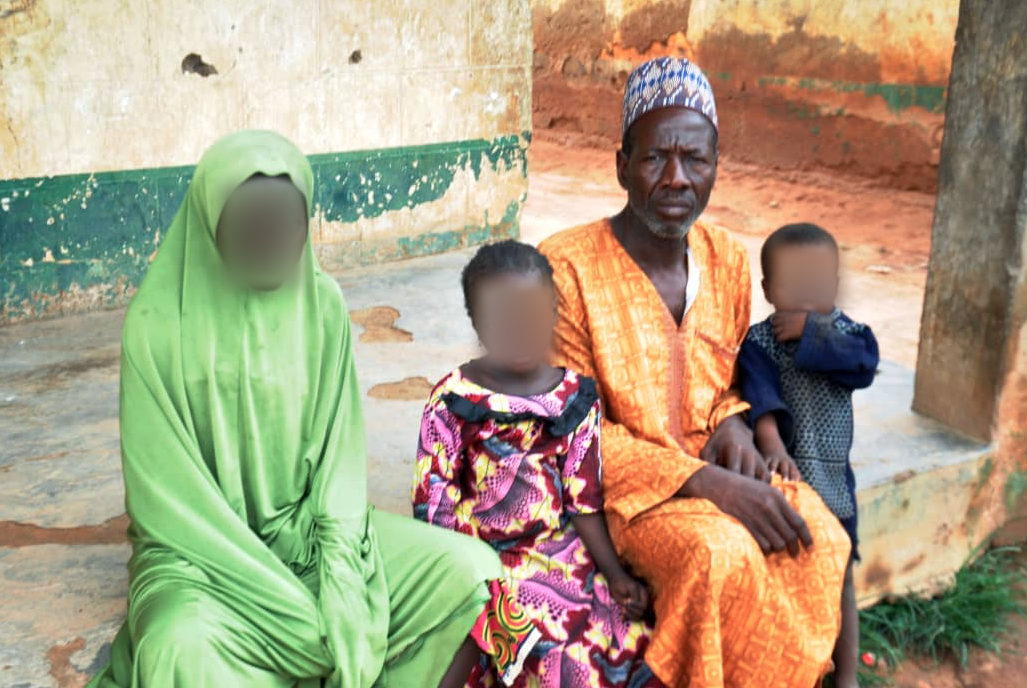
Hauwa is the oldest among the remaining five children with Ibrahim at the IDP camp; so, she assumed the responsibility of a doting mother.
Every morning, 14-year-old Hauwa dashes out of the camp to the market in search of grains and food items spattered on the ground. With her four younger siblings marching behind, Hauwa manages to gather up to two small bowls of grains on a normal day. Sometimes, she walks to other areas of the market to pick up rotten tomatoes, onions or pepper. The young girl has been doing this for the past year.
HOW CHILDREN WINNOW STONES FROM GRAINS
Advertisement
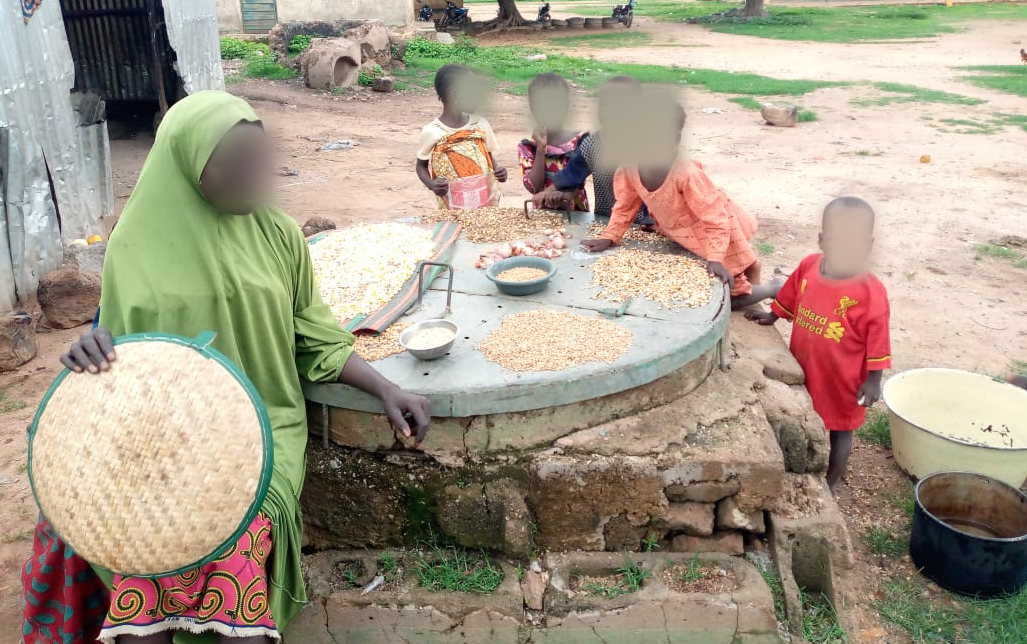
Sitting on the edge of an iron-made well lid where different kinds of grain undergoing sifting were spread, Hauwa recounted the plights of living at the IDP camp without food.
When she was four, she was sent to Kukoki village in the LGA to stay with her grandmother. Hauwa lived with her until she turned 10. But when bandits started to spread across the zone and entered Kukoki shooting everything in sight, the young girl and her grandmother ran for several days in the bush before they stumbled into Kagara – a town in Rafi LGA of Niger state.
Her grandmother then returned her to Zongoro to live with her parents. At that time, Zongoro village was yet to experience any attack by bandits. Hauwa started attending Islamic school, and then the bandits struck! Her Islamic education ended; the IDP camp became her new home.
“I don’t enjoy living in this camp. We are just suffering every day with nothing to eat. I pity my father a lot; that is why I usually go with my younger ones to collect grain and any food scattered on the ground at the market,” Hauwa said.
Advertisement
“Whenever I go with my younger ones, we usually get up to two small bowls after sieving and washing. But whenever I go alone, with half grain half stones, I only get a small cup full of clean grain or even less after winnowing. We winnow the stones from the grains, store them and wait till we can collect more before we wash them and turn them into something edible.
“We have been doing this for more than one year now and this is how we have been surviving in the camp. The only food that has touched our mouths today is the N100 (24 cents) crumbs of cassava our father bought for us since morning.”
FROM RUNNING A FARM TO RUNNING FOR LIFE
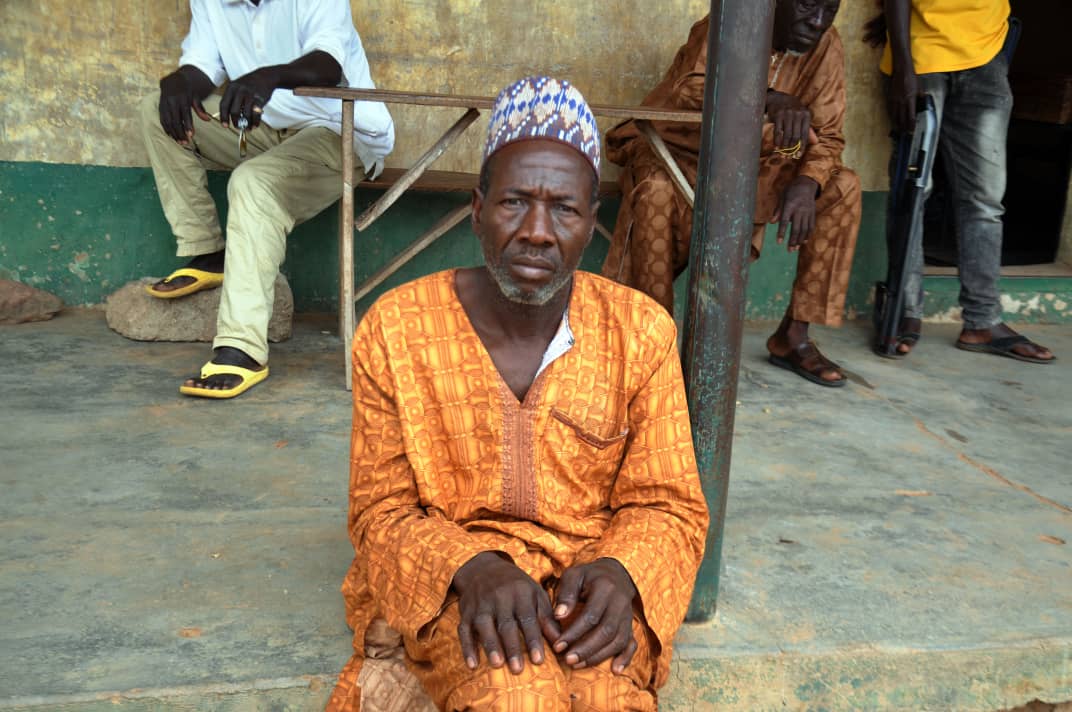
Farming was Ibrahim’s only source of livelihood and it served him contentedly. He was respected in his family and was highly esteemed among his friends as the prosperous farmer who owned many fertile farmlands.
Advertisement
He had separate farmlands for the cultivation of rice, maize, yam, cassava, soya beans and vegetables. With four cows and many sheep, Ibrahim had more than enough to sustain his family for years until some gunmen invaded the village and destroyed his farmlands, burnt down some of the thatched huts where he stored his farm produce and carted away two of his cattle.
Ibrahim escaped into the bush with his family and they lived there for about three months before he heard of the relative peace in the village and returned home with his family. The day he returned in June 2019, the bandits struck Zongoro at night and abducted his ten children.
Advertisement
“They have been attacking our village for about four years now. The first time they came, they destroyed nearly all my means of income. My farmlands were very prolific. I used to plant many crops. I cultivated rice, cassava, maize, yam, soya beans and vegetables,” Ibrahim told this reporter at the IDP camp.
“My farm produce is for both commercial and subsistence purposes. I remember how I used to make over N5,000 on a basket of yams after subtracting the other cost of production. We used to be very comfortable.
Advertisement
“When they attacked our village the first time, I ran into the bush with my wife and children and we slept in there for several months. We endured and remained in the bush despite the cold and rain.
“Our homes became frightening; it was like a nightmare to us. We could only stare at our houses from our hiding places in the bush, yet couldn’t go near them. We turned the bush into a second home as we cooked, bathed and continued our lives in the forest.
Advertisement
“After we returned home and my children were seized by the bandits, the abductors asked us to bring a ransom of N250,000 ($575) naira per child. I was lucky I still had two cows, some farm produce and some sheep. I sold them all and also emptied my savings. My wife also contributed, selling all her cows before we were able to secure N2.5 million ($5,747) for the release of our children.
“It was not easy for us but you know, at that time, they (gunmen) were still humble in their demands, unlike now that they demand millions of naira for just one victim.”
A TIRED MAN IN A TIRED CAMP
Ibrahim looks old and tired. He could not tell his exact age when asked, but he had a faint idea that he was a bit above 60. He limps around the camp, placing more weight on one leg. According to him, he strained one of his legs while running in the bush when the bandits attacked his village. He has been using several herbal mixtures to heal the wounds, but nothing has changed and the pains won’t just go away.
Over the years, Ibrahim has been battling insomnia. The thought of how the children will eat every day keeps him awake every night.
“Before bandits invaded our village, my legs were okay. Now, the second leg has been affected,” he said.
“Whenever I walk, I only take a few steps and then find a place to rest before I continue. Hospital? I should go to the hospital? Visiting the hospital requires a lot of money which I don’t have. We are just managing.”
With some roofs detached from the building and parts of the ceilings in virtually all the rooms at the IDP camp removed, the displaced persons stay awake most nights to sweep away rainwater from the rooms.
The holes in the roofs could attract dangerous reptiles and insects capable of spreading infections or even causing death.
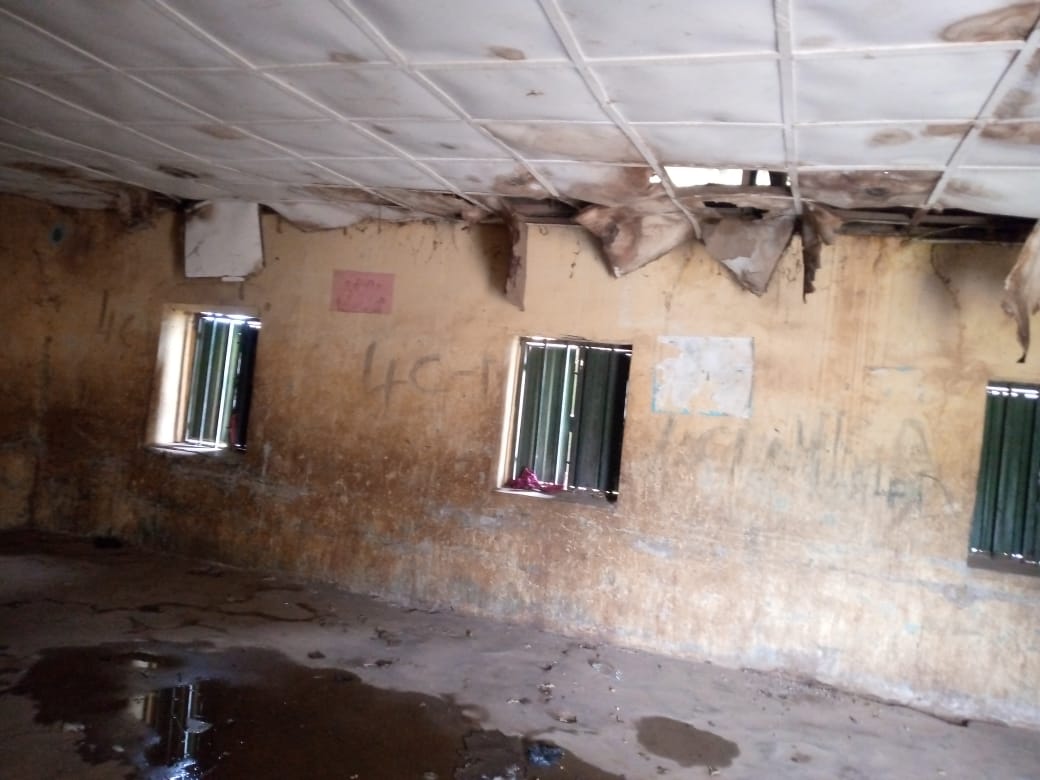
While at the camp, this reporter observed that parts of the rooms were filled with stagnant water from the downpour of the previous day. The IDPs had packed their luggage, worn-out beds, mats and some kitchen utensils to a corner of their rooms.
On the condition of the camp, Ibrahim said they had since accepted their fate and lived less concerned about the situation of their environment. According to him, he is more worried about their rarely filled bowels.
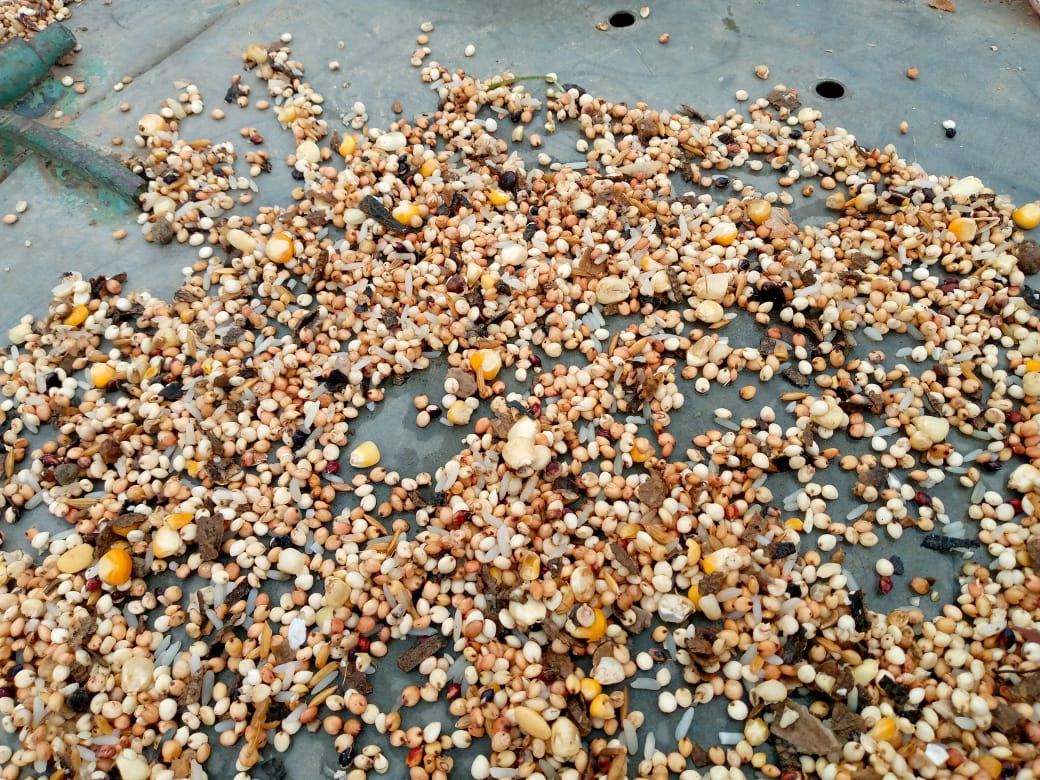
“Our major problem is what to eat. We usually don’t sleep conveniently at night. Sometimes, whenever it rains heavily at night, we usually stay awake to sweep out the water to prevent it from destroying our properties,” Ibrahim said.
POOR SHELTER WITH ALMOST 2,500 DISPLACED PERSONS
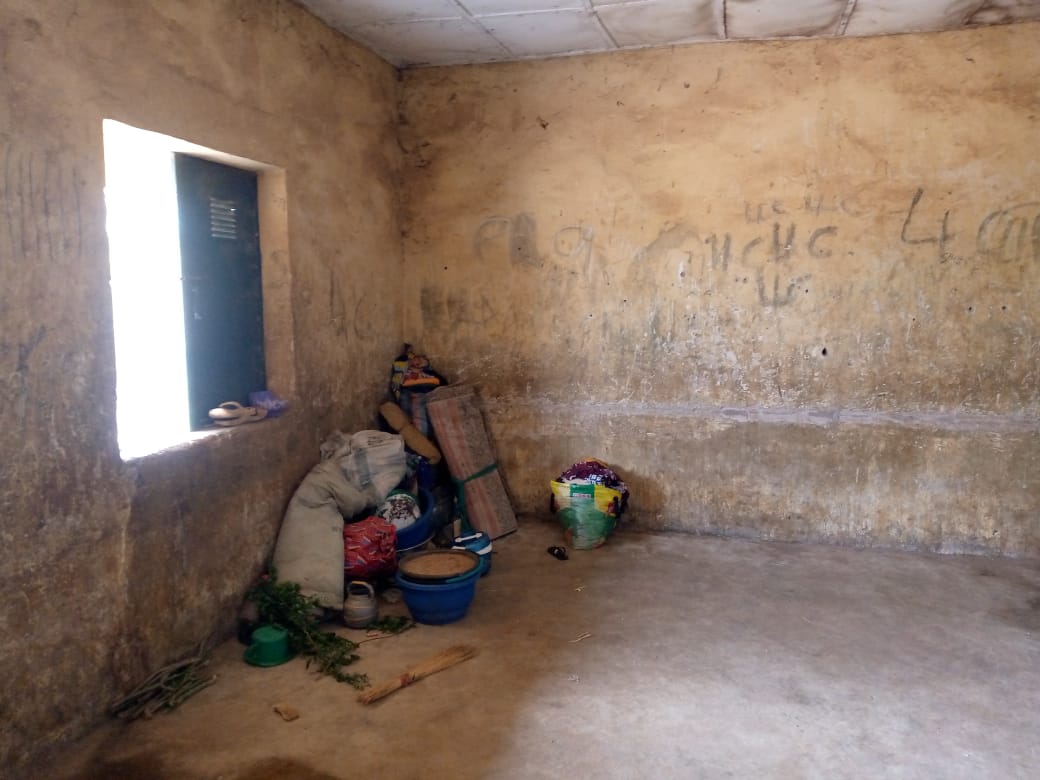
Yusuf Bala, the official in charge of the Kuta IDP camp, says about 2,424 internally displaced persons from various communities across Niger state are living currently inside the camp.
Bala said the figure continues to rise as the rate of bandit attacks on communities in the state is heightened. According to him, there are 1,705 children, three times higher than the number of men and women living in the camp.
The camp official said the major challenge of the IDPs is food, adding that over 17 communities from Rafi LGA in the state are lodged in the Kuta camp.
“The population is not steady. For example, during the rainy season, most men still find their way to go and farm. It is only women that stay behind. Despite the danger, they must feed. So, our major challenge here is that we don’t have food. We are in serious need of food,” Bala told TheCable.
“What they do is that on market days, they go to the market and sweep and gather together all the leftovers of grains on the ground. They come back to wash it and make something out of it.
“They usually separate it from the sand. You will see rice, maize and millet; it is very terrible. They are not finding life here easy but they are only surviving by the grace of God.”
FOOD CRISIS IN NIGERIA
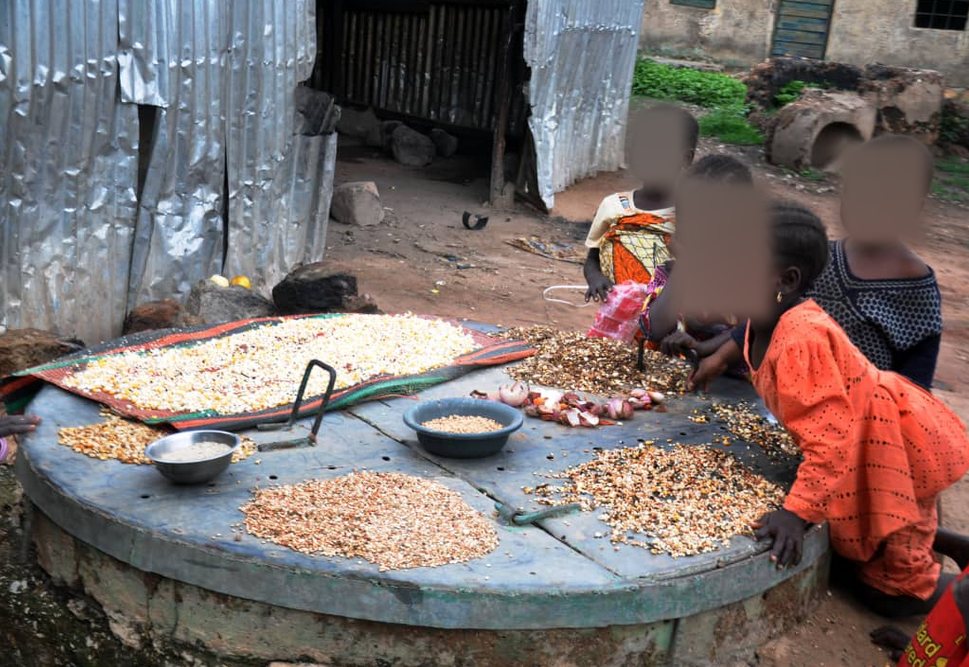
According to recent data by the Food and Agriculture Organisation (FAO), about 19.4 million Nigerians may experience acute nutrition and food insecurity between June and August 2022. The data shows that about 14.4 million people in Nigeria are currently facing food insecurity.
According to FAO, out of the over 14 million affected citizens, 385,000 are IDPs across 21 states including the federal capital territory (FCT) in Nigeria.
Niger, Yobe, Sokoto, Katsina, Bauchi, Enugu, Kebbi, Kano, Kaduna, Borno, Adamawa, Taraba, Plateau, Edo, Gombe, Benue, Abia, Zamfara, Lagos, Cross River, Jigawa are listed as states undergoing food crisis in the country.
However, insecurity in the country has impacted food security, which has further worsened the living standard of Nigerians and pushed more citizens into poverty. On his part, Ibrahim is looking forward to the day banditry will be conquered in the zone and he returns to the prosperous farmer who is proud of feeding his large family and providing for their material needs.
Add a comment





